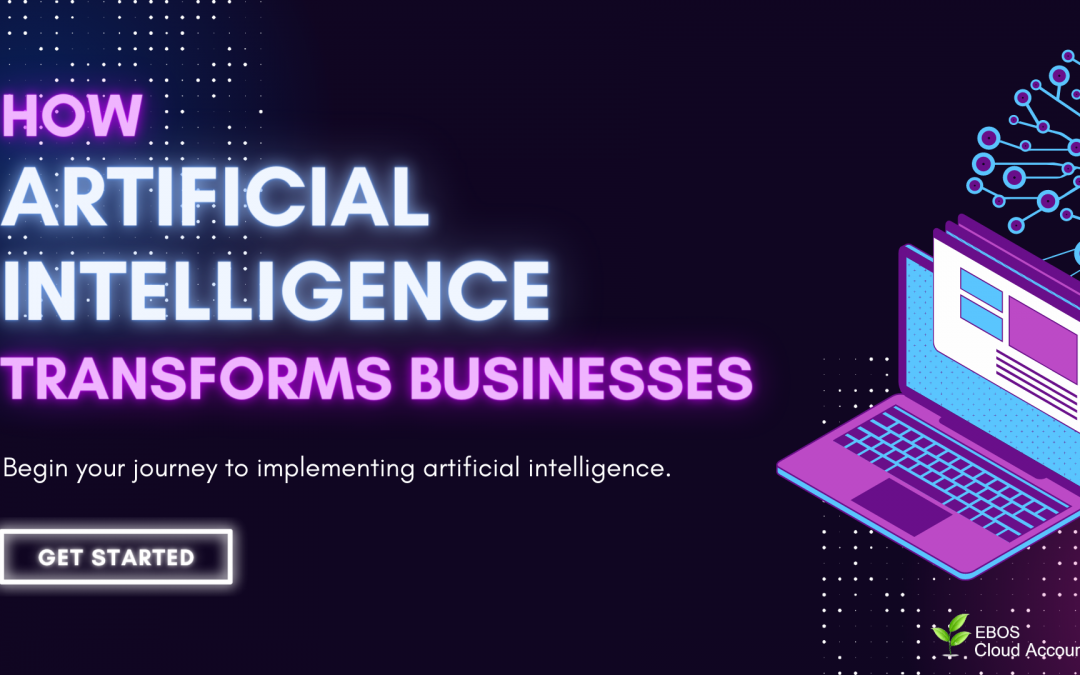Most of us have regular interactions with artificial intelligence (AI), and we may not even be conscious of it. With digitisation driving the world, the use of AI is becoming more common in both workplaces and our homes. How can businesses integrate AI as its acceptance in mainstream society grows? Before we delve into how Ai can transform businesses, let’s define the term.
What is AI?
Artificial intelligence (AI) is a broad field of computer science concerned with creating intelligent machines capable of performing tasks that normally require human intelligence. Today, there are primarily two types of AI being developed for business purposes: machine learning and deep learning. Machine learning is mainly used to process large amounts of data quickly while deep learning is a subset of machine learning that uses neural networks to perform nonlinear reasoning. This enables users to perform advanced functions such as fraud detection by analysing a large number of factors at the same time.
How can businesses integrate with AI?
Some of the most common uses of AI are machine learning, cybersecurity, customer relationship management, internet searches and personal assistants.
- Machine learning
Machine learning is frequently used in systems that collect massive amounts of data. Smart energy management systems, for example, collect data from sensors attached to various assets. The massive amounts of data are then contextualized by machine-learning algorithms and delivered to the company’s decision-makers in order for them to better understand energy usage and maintenance requirements.
- Cybersecurity
When it comes to detecting flaws in computer network defences, artificial intelligence is an invaluable ally. AI systems can detect a cyberattack as well as other cyberthreats by monitoring patterns in data input. When it detects a threat, it can search the data for the source and help prevent future threats. This will be invaluable in preserving infrastructure.
- Customer relationship management
Customer relationship management (CRM) systems are also changing as a result of artificial intelligence. Salesforce and Zoho, for example, rely heavily on human intervention to stay current and accurate. When AI is applied to these platforms, a standard CRM system transforms into a self-updating, auto-correcting system that manages relationships for the user. The financial sector is a great example of how AI can help with customer relationships; for example, commercial banks can integrate AI with regular banking operations.
- Internet searches
AI has the ability to analyse massive amounts of data to identify patterns in people’s search behaviours and provide them with more relevant information about their situation. Users will have a more customizable experience as they use their devices more and as AI technology advances. This is great news for small businesses because it will make it easier to target a very specific audience.
- Personal assistants
Artificial intelligence doesn’t just provide a more personalized experience for customers. It can also change how a company operates on the inside. AI bots can be used as personal assistants to help manage emails, calendar, and even provide recommendations for process streamlining. These AI assistants can also be programmed to answer questions from customers who call or chat online. These are all small tasks that make a big difference in implementing business-growth strategies.
In conclusion, as more human jobs are integrated into these new workflows, AI in the workplace can help with job creation. The workplace is likely to become more specialized, necessitating creative, problem-solving, and qualitative skills in human jobs. Whether we like it or not, the future is rapidly approaching, and artificial intelligence will undoubtedly play a role. As this technology advances, the world will witness new ventures, numerous business applications and consumer applications, the displacement of certain jobs and the creation of entirely new ones. The big question still remains, is your company ready for AI integration yet?







